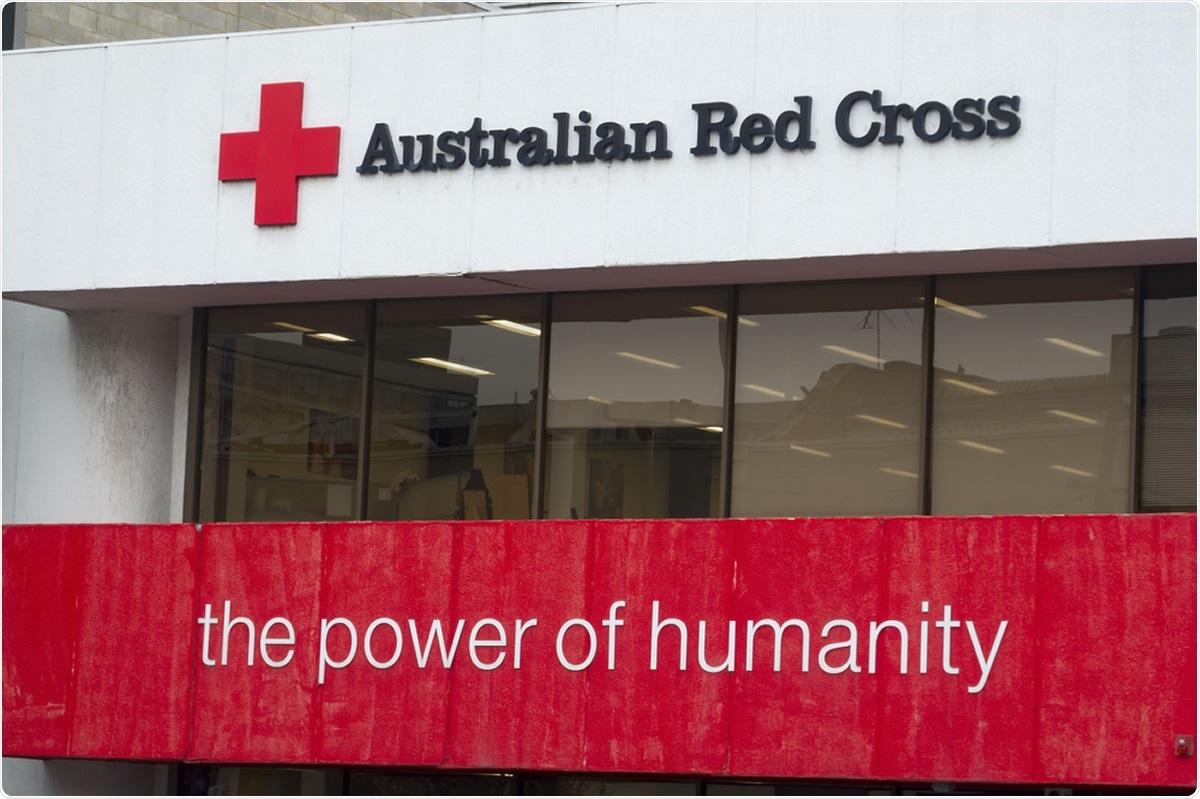Seven in 10 Aussies say strong community bonds sustain them through COVID19, but more action needed to prepare for future lockdowns and looming disasters.
That’s one of the key findings of the latest annual nationwide survey by Red Cross on the state of Australia’s readiness for emergencies, as the charity urges people to get ready for more bushfires, floods as well as COVID19 outbreaks and lockdowns.

Image Credit: Sylvie Masson Photography / Shutterstock
“Our 2020 survey reveals close to seven in 10 (65%) credit strong connections with friends and family as the most important factor in helping them manage during what has been a year of extremes with the summer fires and now the pandemic,” says Red Cross National Resilience Adviser John Richardson.
“In a true sign of community spirit, Australians will give the shirt off their own back for one another, with strong levels of community trust, with around six in 10 (58%) believing the community will come together to help in a crisis.”
The survey also showed around four in five (77%) Australians believe we need to prepare better for pandemics, but over half (52%) don’t know-how.
“Living through COVID19 more than half of us (56%) are thinking of the risks for future outbreaks but fewer are inclined to actively prepare. Alarmingly around one in five (20%) are taking no action saying it’s not even realistic to prepare,” adds Mr. Richardson.
“Red Cross wants to assure people that preparing for another virus outbreak and indeed any other weather-related or manmade crisis later this year is possible. It’s something well within our control, and it will help us recover better in the long term.
“The great majority are aware of increasing weather-related crises, but only around two in five (35%) are taking active steps to prepare for the next fire season.
“Even in communities where people are highly confident their town is prepared for future emergencies, just under half (40%) still don’t believe their community is ready for bushfires, heatwaves and floods.
“We are making excellent progress in awareness, with most of us considering possible risks, but we will need to take more action, as just one in five (21%) of us have identified a safe place to meet or identified someone who could help in a crisis for instance.
“We know from our long experience of responding to emergencies that taking simple actions like being informed, having a reliable person you can call on for assistance and getting organised by making a plan makes people more resilient in the face of increasing hazards in our region.
“In Emergency Preparedness Week, Red Cross is encouraging people to take action. We want to help every Australian get prepared, both physically and emotionally, for the emergencies they may face,” Mr Richardson said.
From Monday 31 August to Monday 7 September, Australian Red Cross runs its annual Emergency Preparedness Week urging all Australians young and old to get ready and be prepared. You can’t stop emergencies from happening, but you can reduce how much they affect you. Take action now to prepare yourself and those you love for whatever may come your way: redcross.org.au/prepare
* Red Cross research conducted the survey with a random representative national online sample of 1,000 Australians over the age of 18 in August 2020
Background information
Four simple steps can make you better prepared for any emergency
- GET IN THE KNOW: about your risks, where to get information, and how to manage stress
- GET CONNECTED: by identifying emergency contacts, meeting places, and people who can help
- GET ORGANISED: with important documents, medical information, insurance and pet plans
- GET PACKING: with a list to help you survive and personal items that are important to you
For everything you need, visit redcross.org.au/prepare
Top line survey data
- Close to seven in 10 (65%) credit strong connections with friends and family as the most important factor in helping them manage a year of extreme emergencies. And six in 10 (58%) believe their community will come together in a crisis.
- Around four in five (77%) Australians believe we need to be more prepared for pandemics, but 2 in 5 (52%) say you can’t truly prepare and don’t know-how.
- More than half of us (56%) are thinking of the risks for future outbreaks, but around one in five (20%) are taking no action saying it’s not even realistic to prepare
- Around seven in 10 (67%) have noticed increasing weather events, but just under two in five (35%) are taking active steps to prepare for the next fire season.
- Even for emergencies where Australians strongly believe their town is ready for floods, fires and heatwaves for example just under half (40%) feel their communities are not prepared. For example, two in five (40%) feel their community is not prepared for the next bushfire season.
While half of Australians (51%) have thought about the risks of an emergency, there are significantly lower rates of taking other actions besides storing documents and assets.
- Around two in five (43%) have thought about an emergency plan or stored important documents (40%), three in 10 (29%) have taken steps to protect assets or sentimental belongings and around one in four (25%) identified someone who needs help.
- Around one in five (23%) have got an emergency kit, talked to neighbors about what’s needed (22%), identified someone to help you (22%), taken steps to psychologically prepare (21%); identified a safe place to meet (21%). Only one in 10 (10%) have written a plan.
There has been an increase in regional Australians acting to prepare for emergencies year-on-year across all indicators. Notably, a seven percent increase in putting emergency kits together.